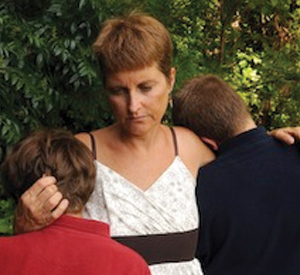Wrongful Death
“Wrongful Death” is a term that almost seems to imply it has an opposite meaning - a “rightful death.” Not necessarily. It is a catch-all legal term that is used to describe a situation where the death of a person would not have taken place under the circumstances that it did, except for some negligence that occurred on the part of another person. As an experienced Boston wrongful death attorney, I'd like to explain there is no one situation where a wrongful death lawsuit might be indicated: The circumstances surrounding a “wrongful death” can be several: A loved one might have died as a result of medical negligence / medical malpractice, a motor vehicle accident, a slip and fall, a construction injury, or a defective product.
A wrongful death suit differs from other personal injury lawsuits because the actual victim (referred to as the "decedent") is not the party bringing the suit. Rather, it is usually a family member or another named representative of the deceased victim’s estate. A wrongful death lawsuit seeks the recovery of damages for the surviving family or the estate's benefit as a result of the victim's death. The definition of “family members” in Massachusetts is generally limited to the following relatives of the deceased victim: Surviving spouse, children, and issue of deceased children. If there are no surviving issue of the deceased victim, then suit is generally limited to persons, including the surviving spouse, who would be entitled to the property of the decedent.

Money can never replace the loss of a loved one. When a tragedy like this occurs, the law can only offer a judicial remedy, provided that another party's negligence can be proven, for the family members left behind. In Massachusetts, a wrongful death suit allows for a potential award of damages for the emotional harm done to the victim’s family. These types of “non-economic” damages compensate the victim’s family for the loss of companionship, love, and affection that they will endure due to the victim’s death. This type of suit also allows for economic (financial) damages, to compensate for the loss of present and future income that the victim would have earned for his or her family, as well as for medical expenses related to the victim’s death.
In order to bring such a suit in Massachusetts, the suit must be filed before the Statute of Limitations expires, or it will be permanently barred. Hence, if you have lost a loved one due to suspected negligence by another person, business or organization, it is extremely important that you speak with a qualified wrongful death attorney in Massachusetts as soon as possible after the event which caused the victim’s death. We are very experienced in this area of litigation, and you are encouraged to contact us for a free, no obligation consultation.
 Boston Personal Injury Lawyer William Kickham Home
Boston Personal Injury Lawyer William Kickham Home











